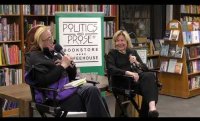Arts in Motion: Karl Ove Knausgaard
“I write exclusively for myself—absolutely 100 percent myself.” In this BBC Arts in Motion segment, Karl Ove Knausgaard talks about his childhood spent with books, the doubts he had beginning his career as a writer, and his writing practice and breakthrough publishing My Struggle, a six-book autobiographical series.









